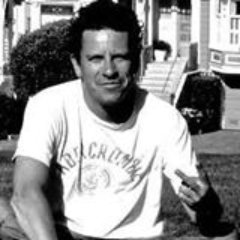Viewed from a two-decade distance, 1995 was an unofficial turning point in alt.rock’s history. The grunge wave had started to recede, leaving room for other bands to consolidate and expand. In the US, Smashing Pumpkins, Green Day, Faith No More and Goo Goo Dolls were creatively peaking, matched in the UK by Britpop’s crescendo and Radiohead’s benchmark, The Bends.
Jagged Little Pill seemingly appeared overnight. What was remarkable about its unimaginable success was its relaxed and humble genesis. Alanis Morissette, a 21-year-old Canadian dance-pop singer, hooked up with Glen Ballard, fresh from producing/writing with Michael Jackson and Paula Abdul, and 13 days later, a multimillion-selling, Grammy-grabbing album was written.
Once aptly described as a 90s version of Carole King’s Tapestry – a highly charged emotional unburdening of youthful heartbreak set to highly accomplished songcraft – the intensely personal nature of the naked and angry lyrics resonated with almost an entire generation, and not just young women.
Though essentially expertly crafted pop rock, an association with alt.rock royalty bolstered its credibility. Guitarist Dave Navarro (then with the Red Hot Chili Peppers) joined bandmate Flea on You Oughta Know, where the pumping-dub bassline propelled the song far beyond its original capabilities.
This confederacy continued in Morissette’s touring band, which included a young Taylor Hawkins on drums and future Jane’s Addiction bassist Chris Chaney. This line-up can be heard on one of the bonus discs, which includes Morissette’s first UK show at London’s Subterranea. Charmingly rough round the edges, it still conveys the excitement and energy of the moment, providing a raw flipside to the polished acoustic version of the album (also included).
At times, a surfeit of harmonica dates the original, and it’s conspicuously reined in on 2005’s acoustic set, but when it fires up over the opening power chords of All I Really Want its lineage can be traced back to Dylan. Critics have often sneered at Jagged Little Pill, largely due to conscious and unconscious sexism. It’s time for a reappraisal: this is an important album.

